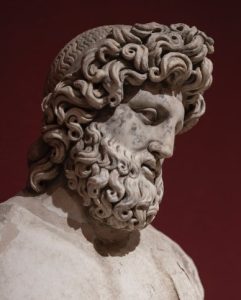5 References To Reincarnation - From The King James Bible

1. John the Baptist and Elijah: In Matthew 11:14, Jesus states that John the Baptist is the Elijah who was to come, indicating a belief in the reincarnation of Elijah.
2. Job’s hope of returning: In Job 14:14, Job expresses his hope that if he dies, he might live again. “If a man die, shall he live again? all the days of my appointed time will I wait, till my change come.”
3. The man born blind: In John 9:1-3, Jesus and his disciples encounter a man who was born blind. The disciples ask whether the man or his parents sinned, but Jesus responds that neither sinned, indicating that the man’s blindness may have been the result of actions in a past life.
4. The transmigration of souls: In Ecclesiastes 12:7, the author states that the body returns to the earth and the spirit returns to God, which some interpret as a reference to the transmigration (reincarnation) of souls.
5. Reincarnation of the Prophet Jeremiah: In the apocryphal book of 2 Maccabees 15:14-16, the Jewish general Judas Maccabeus has a vision in which the prophet Jeremiah tells him that he will be reincarnated as a helper in the future.
6. The resurrection of the dead: In Acts 24:15, the apostle Paul speaks of the resurrection of the dead, which some interpret as a reference to reincarnation.

8. The transfiguration: In Matthew 17:1-9, Jesus is transfigured before his disciples and is joined by the prophets Moses and Elijah. Some have interpreted this as an indication of reincarnation or the continuity of the soul beyond death.
References to Reincarnation in the Book of Enoch
The Book of Enoch is an ancient Jewish text that is not part of the canon of the Hebrew Bible or the New Testament, but it is considered a canonical text by the Ethiopian Orthodox Church. The Book of Enoch contains several references to reincarnation or the transmigration of souls. Here are some examples:
1. Enoch’s vision of the souls of the righteous: In the Book of Enoch chapter 22, Enoch has a vision in which he sees the souls of the righteous ascending to heaven and being given new bodies to dwell in.
2. The judgment of the souls: In chapter 51, Enoch describes a judgment in which the souls of the righteous and the wicked are weighed on a balance. The righteous are assigned to new bodies, while the wicked are condemned to eternal punishment.
3. The reincarnation of the fallen angels: In chapter 10, Enoch describes the punishment of the fallen angels who sinned by cohabiting with human women. They are cast into the earth to dwell as spirits, and Enoch notes that they will remain there until the day of judgment. Some have interpreted this as a form of reincarnation.
4. The resurrection of the righteous: In chapter 50, Enoch describes a resurrection in which the righteous will be raised from the dead and given new bodies to inhabit.
What Did The Ancient Greeks Think About Reincarnation?

1. Plato’s doctrine of recollection: In Plato’s Phaedo, he presents the idea that the soul exists before birth and after death, and that learning is a process of recollection of knowledge the soul acquired in its previous existence.
2. Pythagoras’ belief in transmigration: Pythagoras, a philosopher and mathematician who lived in the 6th century BC, is said to have believed in the transmigration of souls. He believed that the soul is immortal and that it can pass from one body to another after death.
3. Orphism: Orphism was a religious movement in ancient Greece that believed in the transmigration of souls. According to Orphic beliefs, the soul was purified through a series of reincarnations until it achieved a state of perfection.
4. Empedocles’ theory of cosmic cycles: Empedocles, a pre-Socratic philosopher, believed that the universe undergoes cycles of creation and destruction, and that souls are reborn in new bodies as part of this cycle.
The myth of Er: In Plato’s Republic, he presents the myth of Er, in which a soldier named
5. Er is revived after being thought dead and tells of his journey to the afterlife. In the afterlife, souls choose their next life based on their past actions, indicating a belief in reincarnation.
Overall, the ancient Greeks had a complex and varied understanding of reincarnation, and different philosophers and religious movements held differing beliefs about the nature of the soul and its journey through multiple lives.
